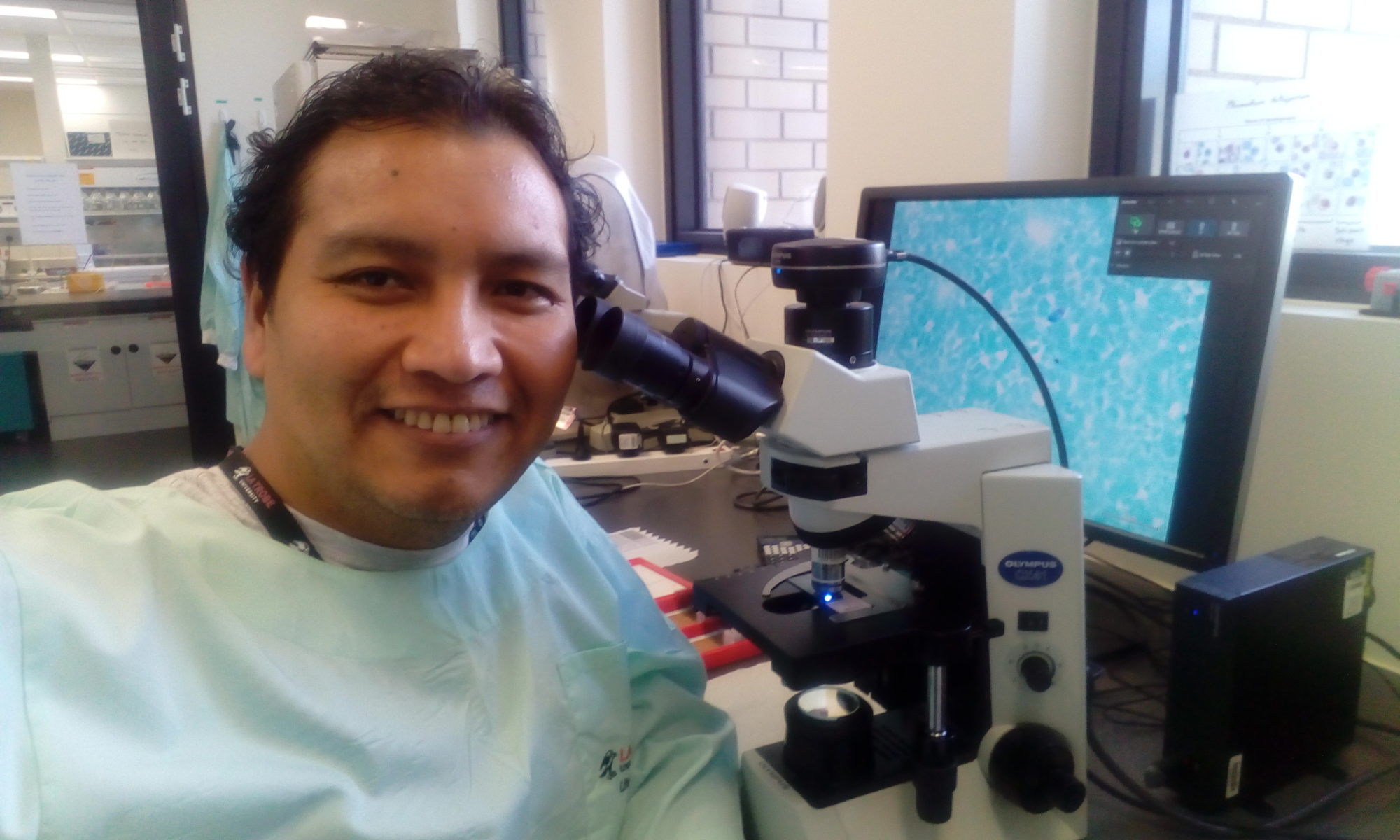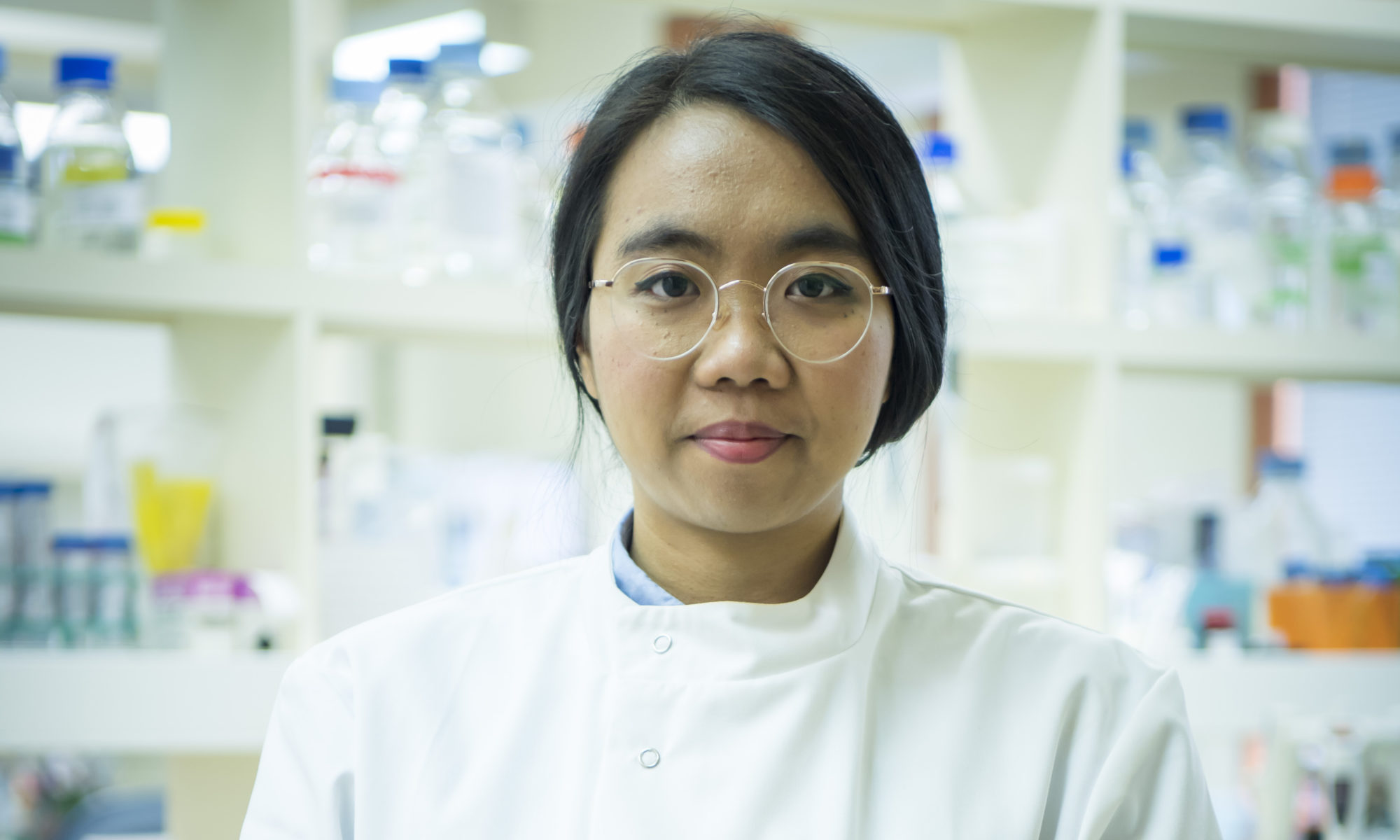Elena is a PhD candidate at the University of Canberra and CSIRO working on rabbit hemorrhagic disease virus as part of the Centre’s Balanced Researcher Program.
Elena graduated from the Faculty of Medicine Department of Pharmaceutical Sciences of Lomonosov Moscow State University in 2018.
For her honours project Elena went to Finland and worked on oncolytic viruses at the University of Helsinki faculty of Pharmacy. She did her bachelor’s project on poliovirus, revealing how important is the interaction of one if its non-structural proteins with its genome for viral replication.
Egi received her BSc in Biology from Universitas Padjadjaran, Indonesia in 2011.
She completed her PhD in Cellular and Molecular Biology from Universiti Sains Malaysia in 2017 where she studied the repair and regeneration process of airway epithelium following aerosol-based stem/progenitor cell therapy in acute lung injury model.
Egi joined the rabbit biocontrol team at CSIRO in 2018 as a Postdoctoral fellow. Her current project focuses on developing rabbit organoid culture to study the replication and infection mechanism of rabbit caliciviruses.
Katherine completed her Bachelor of Science in Ecology and Evolutionary Biology at the University of Adelaide, and continued on to complete her Honours. For her honours, she studied using emerging forensic techniques to determine the origins of a highly invasive exotic species, the red-eared slider turtle (Trachemys scripta elegans). This involved using stable isotopes to identify if a slider incursion was a recently released captive animal, or is from an established wild population.
Katherine is now an early-stage PhD candidate in the Invasion Science and Wildlife Ecology group at the University of Adelaide, supervised by Associate Professor Phill Cassey. Her work involves investigating the pet trade of native and exotic birds, and continuing to develop the use of stable isotopes as a forensic tool for determining wild or captive origins.

Born and raised in Canberra, Jack completed a Bachelor of Psychology and an Honours in Applied Science at the University of Canberra. Throughout his Honour’s year, Jack developed molecular techniques capable of detecting the highly endangered corroboree frog from water samples, which he then used to infer reintroduction success of captive bred populations released into the wild.
Jack has been working as a research assistant as part of the EcoDNA group at the Institute for Applied Ecology. He conducts fieldwork across Australia collecting eDNA samples for various projects such as the National Carp Control Plan, monitoring of macro-invertebrates along the Murray River, and eDNA detection of the Macquarie Perch throughout Abercrombie NP. He also conducts lab work using single-species molecular approaches to inform the presence or absence of native and invasive species, and metabarcoding techniques to assess diet composition of sea birds.
Jack is now completing a PhD at the University of Canberra through the Centre for Invasive Species Solutions, under the supervision of Dr Dianne Gleeson and Dr Elise Furlan implementing, eDNA and metabarcoding techniques across a diverse range of taxa and ecosystems. His PhD is funded through our Centre.

Moses is currently enrolled as a PhD candidate at Murdoch University under the tutelage of Prof. Trish Fleming, Dr Halina Kobryn, Dr Malcolm Kennedy and Dr Tracey Kreplins. As part of CISS, his research project is on “Wild dog management and trophic interactions in landscape-scale cell fencing”.
He intends to quantify relationships underpinning wild dog densities and, the native and introduced herbivores within the Murchison Regional Vermin Cell (MRVC) on Western Australian Southern Rangelands, and hopes to develop empirical data to support the relationships between varying wild dog control efforts and total grazing pressure.
Moses has a Master’s Degree in Wildlife Ecology, and a Bachelor’s Degree (First Class Hons) in Animal and Environmental Biology, both at the University of Benin, Nigeria.
Moses emerged as the Best Graduating Student during his first degree. Consequently, after his National Youth Service (NYSC) year, he was awarded an appointment as a Graduate Assistant in 2015 at the University of Benin, then upgraded to the position of Assistant Lecturer in 2017 after his Master’s Degree.

I was born and raised in Lima, Peru. I graduated from Universidad Nacional Mayor de San Marcos (UNMSM), Lima with a Bachelor of Science in Biology with specialization in Microbiology and Parasitology, followed by a Master degree in Microbiology. After graduation, I spent nine years working as research assistant at NAMRU-6, Peru, where I obtained a strong research background in laboratory assays, emerging disease surveillance and epidemiology.
I enrolled at LaTrobe University Microbiology PhD program in March 2018, working under the guidance of Karla Helbig, PhD and Teresa Carvalho, PhD. Also, my PhD project is part of the Arthur Rylah Institute (Carlo Paccioni, PhD) and the Centre for Invasive Species Solutions (CISS).
My research project focusses in to know the role of wild deer in the transmission of pathogens to livestock in Australia. I will use a range of molecular biology techniques and bioinformatics tools to detect and classify the blood microbiome in wild deer and livestock, moreover study the possible epidemiological implications.

Background
I am an early-stage Higher Degree Research student who has studied and worked in South Australia since 2013. My undergraduate Honours project (completed in 2017 under the supervision of Associate Professor Phillip Cassey) used hierarchical modelling to predict the distribution of an endangered Cunningham’s skink (Egernia cunninghami) population under future climate change. Since then I have collaborated with citizen scientists to improve conservation outcomes for this species and attended multiple conferences in order to emphasise the importance of occupancy-detection monitoring.
Ph.D. Project
As part of CISS, I am currently undertaking a project entitled: ‘Understanding and intervening in illegal trade in non-native species’, which investigates Australia’s role in the spread of potentially invasive species via the illegal wildlife trade. By developing open-source data mining techniques, I aim to analyse online e-commerce platforms to identify broad temporal and spatial trends in the quantity and species diversity of exotic species traded within Australia as well as native species traded internationally. My long-term research objective is to reduce both the opportunity and incentives that have allowed the online illegal wildlife trade to thrive.
Qualifications:
- Bachelor of Science (Honours) 2017
- First Class Honours
- Biology Society of South Australia research grant
- Russell Baudinette Travel Scholarship
- Bill Retalic Prize for Science & Justice
- Bachelor of Science (Advanced) 2014 – 2016
- GPA 6.68/7
- Outstanding Academic Achievement Award
- Elsie Marion Cornish Prize











